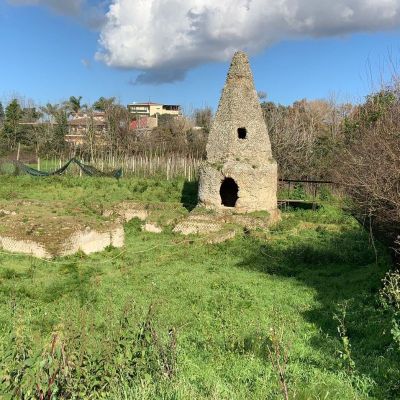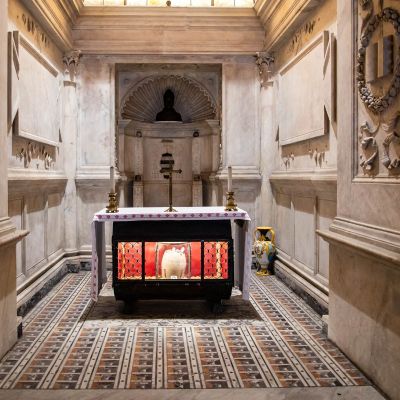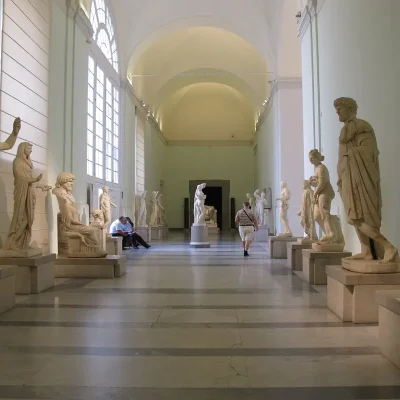Naples, a city known for its rich cultural tapestry, has recently become the hub for an inspiring initiative aimed at celebrating its linguistic heritage. The Fondazione Campania dei Festival, in collaboration with the Campania Region, has launched a series of free events dedicated to the Neapolitan language.
These gatherings are not just events; they’re a journey through the soul of Naples, bringing to life the dialect that has been the voice of its people for centuries. In this article, we delve into the heart of these events, exploring their significance and the diverse themes they cover.
Overview of the Event Series
The series of events celebrating the Neapolitan language will take place at the MUSAP, the Circolo Artistico Politecnico of Naples, located at Palazzo Zapata in the central Piazza Trieste e Trento.

The series of events celebrating the Neapolitan language in Naples is a fascinating opportunity for cultural exploration. However, it’s important to note that all events are conducted in Italian. This may be a consideration for non-Italian speaking attendees who are interested in the rich cultural and linguistic heritage of Naples.
Monday, January 15 – DIALECT AND SCHOOL
- Meetings with Giovanni Ruffino (University of Palermo and President of the Center for Philological and Sicilian Linguistic Studies) and Pietro Maturi (University of Naples Federico II)
Monday, January 29 – DIALECTS: THE SOUND OF THE SENSES – THE SENSE OF SOUND
- Excerpts from the works of Ruggero Cappuccio – with students from the University of Naples Federico II – Tiziana Angrisano, Serena Francesca Catapano, Rosa Cerullo, Benito De Masi, Gaia De Meo, Irene De Rosa, Antonio Di Criscito, Mattia Esposito, Ludovica Franco, Eliseo Fusco, Marco Gallotti, Barbara Lauletta, Valentina Lopresto, Marco Napolitano, Luigino Palermo, Teresa Perna, Martina Scarrone, Emanuele Zappariello, curated by Nadia Baldi – director and artistic vice-director of the Campania Festival Foundation
Monday, February 5 – DIALECT IN HISTORY
- Meetings with Nicola De Blasi, Rita Librandi, Francesco Montuori (Scientific Committee for the Preservation of the Neapolitan Linguistic Heritage)
Monday, February 26 – DIALECT AND CINEMA
- Meetings with Fabio Rossi (University of Messina) and Carolina Stromboli (Scientific Committee for the Preservation of the Neapolitan Linguistic Heritage)
Monday, March 18 – DIALECT AND LITERATURE
- Meetings with Cristiana Di Bonito (University of Naples Federico II), with the poet Raffaele Pisani, and with Patricia Bianchi (University of Naples Federico II)
Monday, March 25 – DIALECT AND THE LANGUAGE THAT IS MUSIC
- Excerpts from “Shakespeare King of Naples” by Ruggero Cappuccio, curated by Claudio Di Palma – actor, author, and director
Monday, April 8 – DIALECT AND MUSIC
- Meetings with the poet Salvatore Palomba and Salvatore Iacolare (University of Udine)
Monday, May 6 – DIALECT AND TOPOGRAPHY
- Meetings with Marina Castiglione (University of Palermo), Umberto Franzese (Scientific Committee for the Preservation of the Neapolitan Linguistic Heritage), and architect Franco Lista.
Monday, May 27 – DIALECT AND CUISINE
- Meetings with Sergio Lubello (University of Salerno) and Lucia Buccheri (University of Naples Federico II) – concluding remarks with Francesco Cotticelli (University of Naples Federico II) and the members of the Scientific Committee for the Preservation of the Neapolitan Linguistic Heritage.
The series, envisioned as a cultural celebration, invites residents and visitors alike to explore the depth and richness of the Neapolitan language. It’s not just about understanding a language but immersing in a cultural experience that has shaped the identity of Naples for centuries. The events cover various aspects of the language, showing its influence on different facets of Neapolitan life.
The key objective of this series is to foster a deeper appreciation and understanding of the Neapolitan language. It seeks to create a platform where the language is not only celebrated but also examined in the context of its historical significance and its role in modern-day Naples. The organizers have emphasized that these events are more than just linguistic discussions; they are a tribute to a language that has been the voice of Neapolitans through generations.
At the helm of these events is a committee led by renowned figures, including Maurizio De Giovanni. Their expertise and passion for the Neapolitan language ensure that each session is not only informative but also engaging. The committee has curated a program that reflects the diversity and vibrancy of the language, with each event designed to offer a unique insight into its significance.
Through these events, the Fondazione Campania dei Festival and the Campania Region are not just preserving a language; they are keeping alive a vital part of Naples’ cultural heritage. It is an invitation to rediscover and reconnect with the roots of Neapolitan culture, an opportunity to view the language through a contemporary lens while paying homage to its historical roots.
As we dive into the themes and sessions in the next section, we’ll explore how these events are not just a celebration but a powerful statement about the enduring legacy of the Neapolitan language in Italy and beyond.
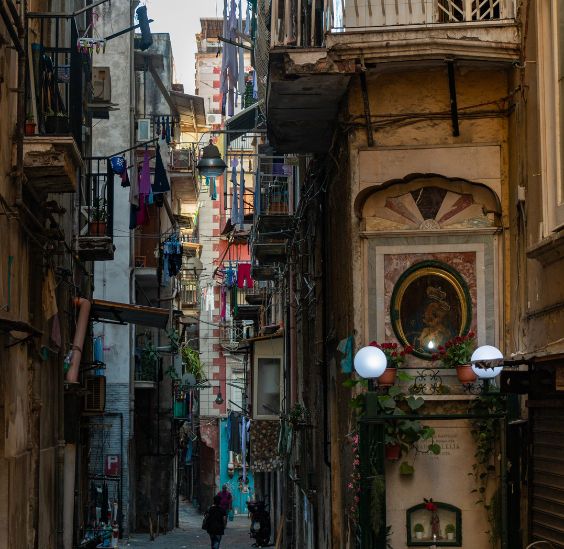
Themes and Sessions
Delving deeper into the event series, each session is a tapestry of themes showcasing the Neapolitan language’s influence across various cultural spheres. These themes are not just academic topics but are vibrant expressions of how the language has permeated every aspect of life in Naples.
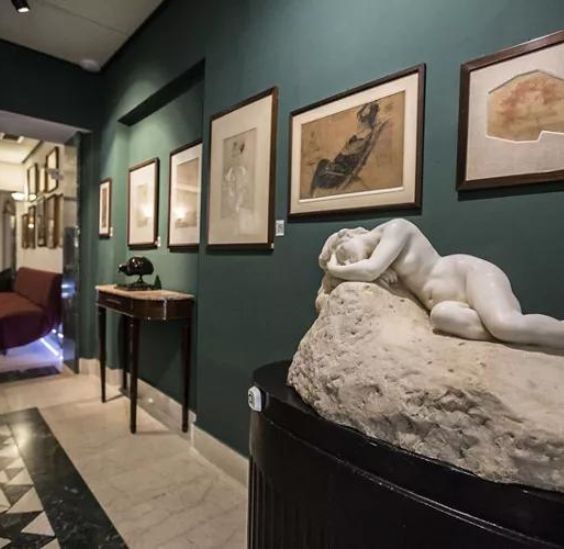
Historical Significance: One session focuses on the historical journey of the Neapolitan language, tracing its origins and evolution. It highlights how the language has been a witness to and a participant in the city’s tumultuous history, from the Kingdom of Naples to modern times.
Neapolitan in Cinema: Another session delves into the world of cinema, exploring how Neapolitan filmmakers and actors have used the language as a powerful tool for storytelling. This theme celebrates the language’s ability to convey deep emotions and complex social realities, making it an integral part of Italian cinema.
Literary Contributions: The literary session sheds light on the works of famous Neapolitan writers who have brought the language to life through their writings. It discusses how these literary works, written in or influenced by the Neapolitan language, have contributed to Italian literature and helped preserve the language.
Music and Folklore: Music is the soul of Naples, and a session is dedicated to exploring how the Neapolitan language has enriched Italian music. From traditional folk songs to contemporary music, this theme demonstrates the language’s versatility and emotional depth.
Culinary Linguistics: An intriguing session revolves around the role of the Neapolitan language in Naples’ culinary scene. It’s a journey through the language of food, exploring how traditional dishes and culinary terms reflect the culture and history of the city.
Educational Impact: The series also addresses the educational aspect, discussing the importance of incorporating the Neapolitan language into the educational system. This theme emphasizes the role of language in cultural identity and the need for its preservation in schools and universities.
Neapolitan in Society: The final theme looks at the role of the Neapolitan language in contemporary Neapolitan society. It examines how the language continues to evolve and adapt, reflecting the dynamic nature of Naples itself.
These sessions, rich in content and diversity, highlight the Neapolitan language’s multifaceted role in shaping the cultural identity of Naples. They serve not only as a celebration of the language but also as an educational experience, deepening the understanding and appreciation of this linguistic treasure.
Impact on Cultural Preservation
The series of events in Naples, celebrating the Neapolitan language, stands as a beacon of cultural preservation and awareness. Its impact extends far beyond the confines of the sessions, resonating with a broader objective of safeguarding a vital part of Italy’s intangible cultural heritage.
Preservation of Linguistic Diversity: These events are crucial in preserving the linguistic diversity of Italy. By highlighting the Neapolitan language, they contribute to the broader effort of protecting regional languages, which are an integral part of the nation’s cultural mosaic.
Educational and Social Awareness: The series plays a significant role in educating both locals and visitors about the importance of the Neapolitan language. It fosters a sense of pride among Neapolitans and creates a deeper understanding among others of the language’s cultural significance. This awareness is pivotal in ensuring the language’s survival and relevance in modern society.
Influence on the Arts and Media: The events have a ripple effect on various forms of art and media. By showcasing the Neapolitan language’s influence in cinema, music, and literature, they inspire new generations of artists and creators to incorporate this language into their work, thereby ensuring its continued presence and evolution in contemporary culture.
Community Engagement and Identity: These events strengthen the community’s bond with their language, reinforcing a sense of identity and belonging. The language is not just a means of communication but a symbol of their history, traditions, and collective memory. Engaging with it through these events fosters a communal spirit and a shared commitment to its preservation.
Tourism and Global Reach: The series also impacts tourism, attracting visitors keen on experiencing the authentic cultural essence of Naples. It positions the city not just as a destination for its historical landmarks and culinary delights but also as a center for cultural and linguistic enrichment.
Policy and Educational Implications: Finally, the success and reception of these events can influence policy decisions regarding the inclusion of regional languages in educational curricula. Recognizing the importance of linguistic heritage in education can lead to a more inclusive and diverse learning environment, benefiting future generations.
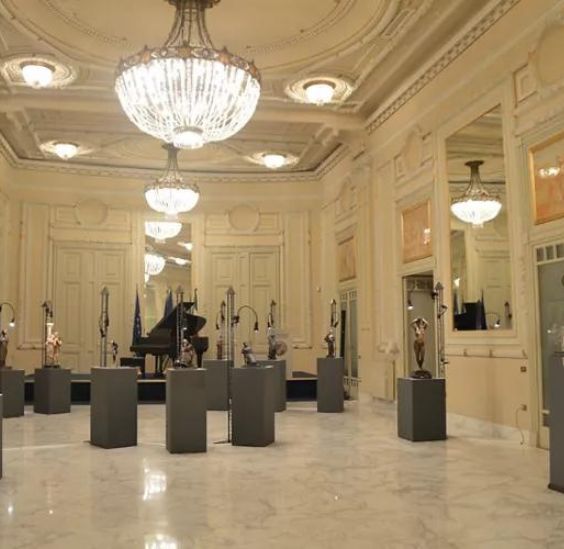
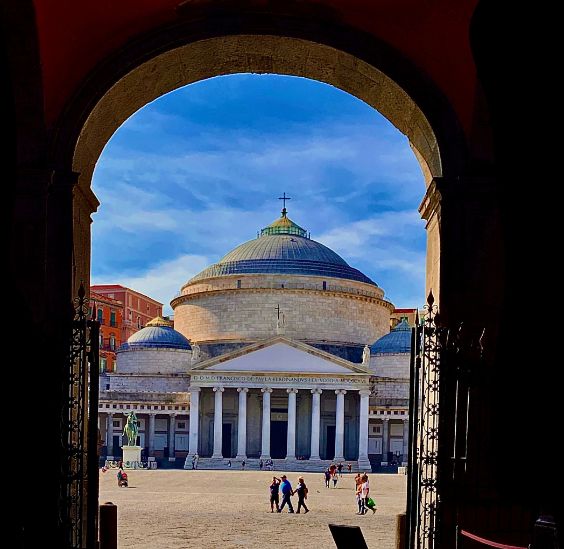
In conclusion, the event series dedicated to the Neapolitan language in Naples is much more than a celebration; it’s a vital initiative for cultural preservation. It highlights the importance of not only remembering but actively engaging with and promoting linguistic and cultural diversity in an increasingly globalized world.



